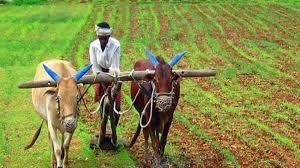Bhubaneswar: After a prolonged debate, the Odisha government finally drafted a legislation to recognize the sharecroppers in the state. The draft legislation is titled “Odisha Agricultural Land Leasing Act”.
“We have drafted a legislation to facilitate leasing of agricultural land aimed at improving agricultural efficiency and granting recognition our sharecroppers so that they can avail government services and supports like other farmers,” said Agriculture and Farmers’ Empowerment Secretary Sourabh Garg.
“The draft is in the discussion stage and we have sought opinions and suggestions from stakeholders. After the lockdown is withdrawn, we will finalise it and table draft Bill in the Assembly,” Garg said.
The draft legislation aims to enable farmers cultivating agricultural land on lease to access loans through credit institutions, insurance, disaster relief, marketing facilities, procurement at Minimum Support Price (MSP), subsidies and other support services provided by government. It also aims to protect the land rights of the owners and related issues.
There are prohibitions and restrictions under the existing state laws governing agricultural land leasing, which compel the land owners and lessee cultivators to only enter into informal agreements. As a result, the sharecroppers are deprived of various benefits. Under the existing laws, land owners feel insecure to lease out agricultural land, thereby reducing the landless poor’s access to land by way of leasing.
As per the draft legislation, a sharecropper or one who is registered self-help group (SHG), joint liability group, farmers’ organizations and company can enter into a written lease agreement on mutually agreed terms and conditions, with the land owner for cultivation of agricultural produces.
In scheduled areas, agricultural land belonging to a Scheduled Tribe (ST) shall be permitted to be leased out only to the Scheduled Tribe farmers, while other category of land owners can lease out agricultural land to both Scheduled Tribe and general farmers.
The agreement will incorporate the names of the land owner and cultivator; survey number, boundaries, location and area of leased outland; the duration of the lease expressed in months or years including the starting and ending dates of the lease; the lease amount along with the due date of payment; and the terms and conditions for renewal or extension of lease, if any.
The written lease agreement will be attested by local Revenue Inspector (RI), Sarpanch or bank officer or a notary with two witnesses.
The government has also allowed continuation of oral lease. However, both sharecropper and land owner have to apply to the designated Revenue Officer for this. The matter will be discussed in the Gram Sabha and then it will be approved by the designated officer, as per the draft legislation.
“A lease agreement, written or oral, shall not be entered into Record of Rights, as the leasing for any period whatsoever, shall not create any occupancy or protected tenancy or right against lawful eviction or lease termination under this law,” it states.
The leased land shall automatically revert to the land owner-lessor on the expiry of agreed lease period, unless it is renewed again.
Biswa Bhusan Mohapatra, OP






































